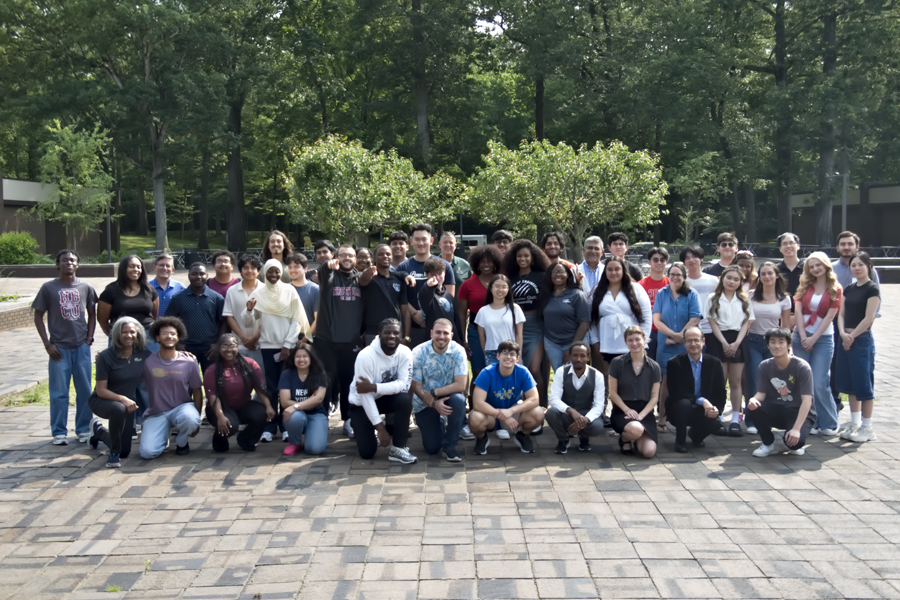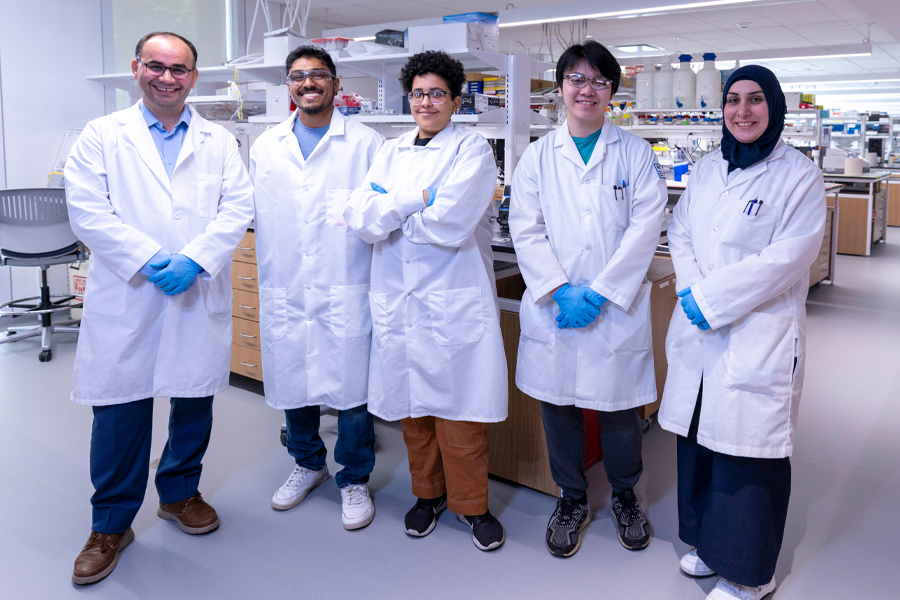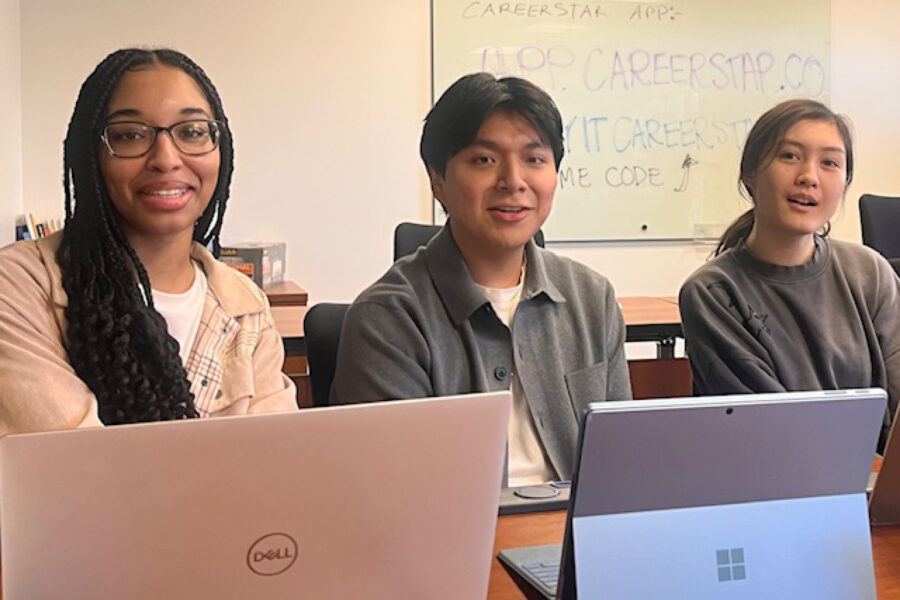Studying Climate Change One Degree at a Time
The National Oceanic and Atmospheric Administration published a study in January 2024 stating that the Earth’s temperature has risen 2 degrees Fahrenheit since 1850—and the rate of warming is only increasing. As the worldwide threat of climate change looms, Vancouver alumna Junhua Qu (M.S. ’24) hopes to address and discover solutions to this pressing issue.
Qu began her collegiate journey at China University of Geosciences in Beijing studying marine geology—the study of the history and structure of the ocean floor and how it impacts the environment. But after working several internships in the field, she realized this wasn’t quite the career path she wanted to follow and switched her major to environmental engineering.
“My enthusiasm [for climate change] peaked during my gap year,” says Qu, who took time after graduating with her bachelor’s degree to explore her interests. “I perused various topics related to the environmental field, including biodiversity protection, carbon market, and energy policy, defining my commitment to climate and energy-related issues.”
She gained three internship experiences in Beijing during this time, bolstering her résumé to include project assistant for the Ecosystem and Biodiversity portfolio in the United Nations Development Programme’s China office; research assistant for the China Beijing Green Exchange’s Carbon Emission Trading Division; and energy policy analyst for the Shanxi Coal Cap Consumption Program in the Natural Resources Defense Council’s Beijing Representative Office.
Passionate about sustainable development, energy transition, and other climate-related global issues, Qu learned that clean energy development plays a vital role in addressing climate change. To become better suited for her career goals, obtaining a master’s degree in energy management was an obvious decision, explaining that the program’s “innovative energy management methodologies fill the gap between academic research and practical skill sets.”
In May 2024, Qu recalled her gap year internship experiences and developed a poster presentation, “A Comparative Study of Energy Policy Between British Columbia (Canada) and Shanxi Province (China),” that she displayed at the Clean Energy of British Columbia’s GENERATE 2024 conference.
“I found it interesting that British Columbia and Shanxi have similar carbon emissions (per capita), although they have quite different populations, gross domestic product, and electricity consumption,” explains Qu. “The two provinces are facing the same challenges in transitioning to a cleaner energy future, which is why I compared them for my presentation.”
In her poster, Qu determined that a more stable, long-term energy plan toward the final climate goals in British Columbia is needed. She demonstrated how Shanxi’s experiences of close cooperation between multiple departments and various industry sectors that contribute to an integrated energy policy framework can be applied, in certain cases, in British Columbia.
Through her research, findings, and solutions recommendations that she displayed at the conference, Qu was selected as GENERATE 2024’s student poster competition winner.
As a graduate student, Qu volunteered for several local nonprofits specializing in climate education, sustainable energy, and land-based education. In the classroom, among other projects, she examined the implementation of run-of-river projects—a type of hydroelectric power plant that uses flowing water to generate electricity—in British Columbia, specifically analyzing the status and support of the Hupacasath First Nation’s China Creek Micro-Hydro Project on Vancouver Island.
With deep research on the financial status and operations of the project, Qu expects more policy stability and equity funding for Indigenous clean energy projects, honoring Aboriginal rights, and meeting their future energy needs. At GENERATE 2024 she ran into Chief of the Hupacasath First Nation Judith Sayers. Qu says this was an exciting opportunity to discuss the project in person.
Now, Qu wants “to become a changemaker,” dedicated to addressing climate change with innovative ideas and practices, supported by hands-on experiences, and a global view. She may even pursue more academic degrees—perhaps another master’s or a Ph.D.—related to climate and energy. “I just love the idea of exploring the world while studying,” she says.
More News

Students Learn About Spectrum Technology From Industry Experts
Industry leaders, faculty, students, and staff from universities across the country gathered on the Long Island campus for Spectrum Sizzle, an undergraduate spectrum workshop funded by the National Science Foundation.

Cybersecurity Graduate Students Rank 25th in MITRE’s eCTF 2025 Competition
First-time participants, 10 cybersecurity students from the Vancouver campus break into the global top 25 in prestigious Embedded Capture the Flag (eCTF) challenge.

Entrepreneur, Treasurer, and Robotics Designer
When computer science student Gunn Aggarwal devised a business idea for a class, she didn’t envision the level of success that it would soon reach.

Forging New Frontiers in Computer Science
When Siddhant Bhandari (M.S. ’23) and Surbhi Hirawat (M.S. ’23) got together for dinner one evening, they had no idea it would inspire them to do research to help preserve their Indian traditions.

Blueprint for Healing
A multidisciplinary team of students is investigating solutions for wound healing that would speed healing and positively impact the lives of countless people.

Students Propose Solutions to Commuting Challenges
On the heels of last fall’s efforts to solve commuting challenges, students in spring’s Data 101 course are turning ideas into action.